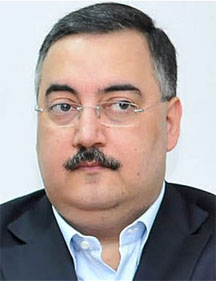BEIRUT, (Reuters) – A prominent Lebanese intelligence official opposed to President Bashar al-Assad was killed in a huge car bomb in Beirut in another sign that Syria’s civil war is dragging its volatile neighbour into the conflict.

Wissam al-Hassan, who led an investigation that implicated Syria and Hezbollah in the assassination of former prime minister Rafik al-Hariri, and seven other people were killed when the bomb exploded in central Beirut yesterday afternoon.
Hassan, a Sunni Muslim who was close to Hariri, also helped uncover a bomb plot that led to the arrest and indictment in August of a pro-Assad former Lebanese minister, in a setback for Damascus and its Lebanese allies including Hezbollah.
The bombing was the most serious to hit the capital since Hariri’s 2005 assassination and prompted Sunni Muslims to take to streets across the country, burning tyres and blocking roads in a show of sectarian anger.
Hariri’s son, Saad al-Hariri, accused Assad of being behind the bombing, while Lebanon’s opposition March 14 bloc called on Prime Minister Najib Mikati’s government, which includes ministers from Hezbollah, to resign over the bombing.
The head of Lebanon’s Internal Security Forces, Major-General Ashraf Rifi, described Hassan’s death as a “huge blow” and warned that further attacks were likely.
“We’ve lost a central security pillar,” he told Future Television. “Without a doubt, we have more sacrifices coming in the future. We know that, but we will not be broken.”
Rubble and the twisted, burning wreckage of several cars filled the central Beirut street where the bomb exploded, ripping the facades and balconies off buildings.
Firefighters scrambled through the debris and rescue workers carried off the bloodied victims on stretchers. In the confusion following the blast, it took several hours before any official word emerged that Hassan had been targeted.
Speaking shortly after the bombing, Lebanon’s Foreign Minister Adnan Mansour told Reuters that his Iranian counterpart Ali Akbar Salehi had condemned the bombing and planned to visit Beirut today.
Iran is a powerful supporter of both Hezbollah and Syria’s Assad, who is fighting a 19-month-old uprising waged by mainly Sunni Muslim insurgents. More than 30,000 people have been killed since the uprising erupted in March last year.
Lebanon’s religious communities are divided between those supporting Assad and those backing the rebels, leaving it vulnerable to spillover from the Syrian bloodshed.
Two Syrian officers, including General Ali Mamlouk, the head of Syria’s national security bureau, were indicted along with Lebanon’s former information minister Michel Samaha in August over a plot allegedly aimed at stoking violence in Lebanon.
The indictments were an unprecedented move against the more powerful neighbour – a major player in Lebanon’s affairs for decades.
As well as being the brains behind the Samaha investigation, Hassan led the investigation into Rafik Hariri’s murder seven years ago and uncovered evidence that implicated Syria and Hezbollah – a charge they both deny. An international tribunal accused several Hezbollah members of involvement in the murder.
